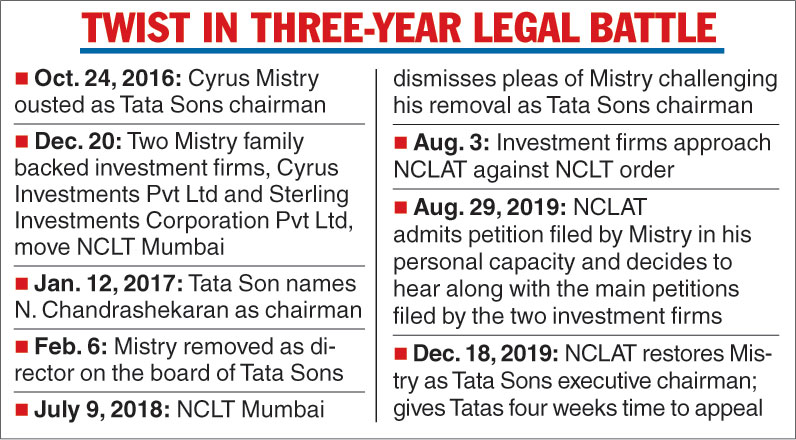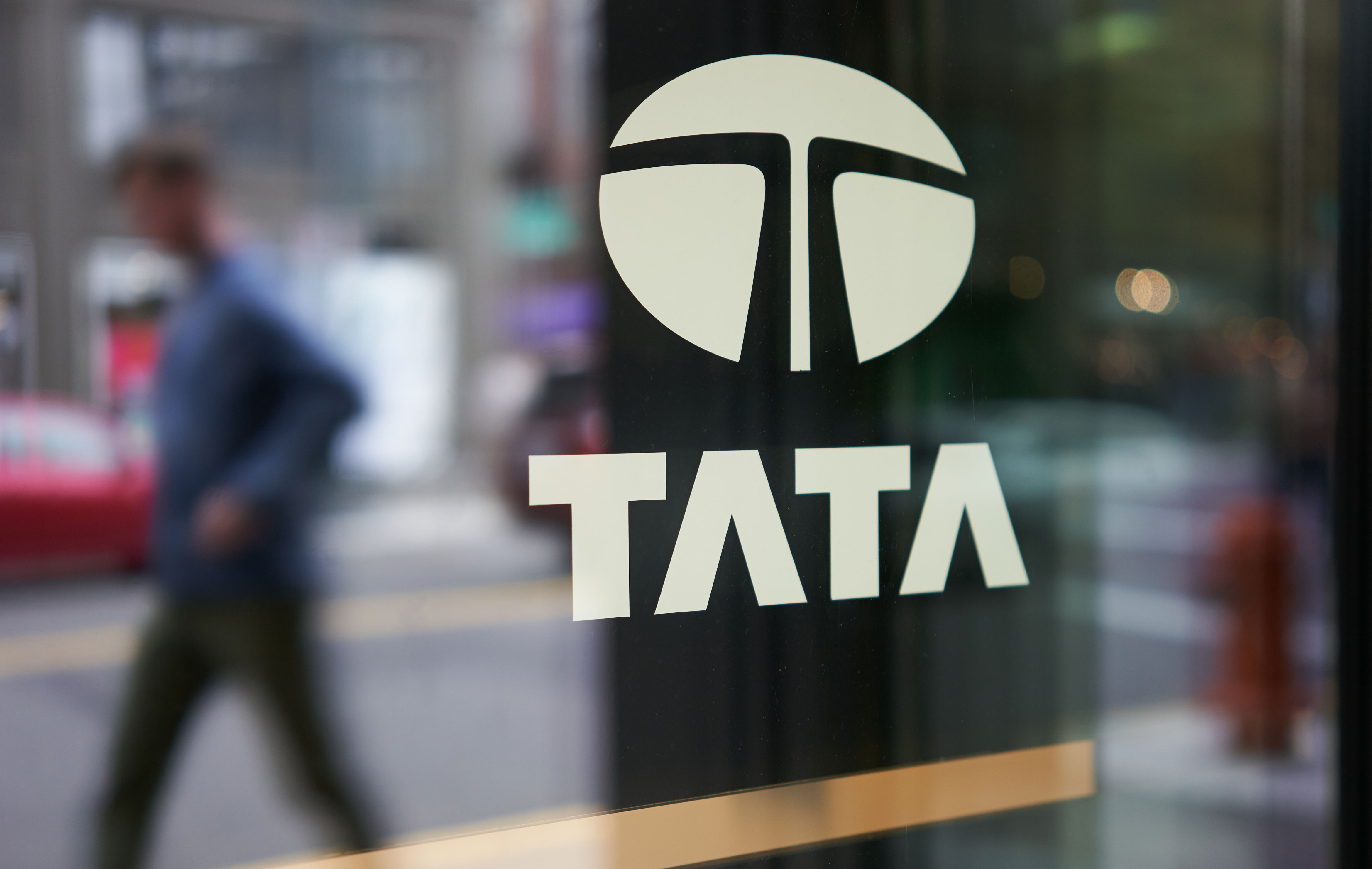The National Company Law Appellate Tribunal has picked holes in the legal procedures that Tata Sons followed while converting itself into a private company in September 2017 and declared the conversion as “illegal”.
The NCLAT bench comprising Sudhansu Jyoti Mukhopadhaya and Bansi Lal Mehta directed the Registrar of Companies (RoC) to make the necessary corrections in its records and show the company as a public company.
The tribunal held that Tata Sons needed to follow the procedure laid down under Section 14 of the Companies Act, 2013, which lays down the manner in which a company can alter its articles of association with regard to the conversion of its status.
The company changed its name from Tata Sons to Tata Sons Private Ltd through a special resolution passed in an annual general meeting of the company on September 21, 2017.
The Mistry family, which holds an 18 per cent equity stake in Tata Sons, contested the move but the resolution was still passed since it needed 75 per cent of the voting rights.
Tata Sons was originally formed as a private limited company on November 8, 1917. It became a deemed public company under the provisions of section 43A (1) of the Companies Act, 1956 but its articles of association were not changed to reflect this.
In February 1988, the company was re-incorporated as Tata Sons Limited.
A private limited company affords two benefits: first, it limits the financial liability of the shares to the extent of its share capital and caps the number of shareholders to 50.
Second, it places a severe restriction on the sale of shares. Shareholders cannot sell their shares to outside buyers, thereby severely limiting their options to liquidate their shares.
The move would have hurt Mistry as he would be forced to sell the shares to the Tatas, thereby restricting discovery of the true value of his holding.

Tata move
The Tatas took refuge under a General Circular No: 15/2013 dated September 13, 2013 and a notification dated September 12, 2013 by the central government to submit that a company which comes within the meaning of private company under Section 2(68) of Companies Act, 2013 can take direct permission from the RoC to change the article of association and to record it as a private company.
Section 2 (68) lays down the definition of a private company while Section 2 (71) defines a public company.
“However, the aforesaid general circular cannot override the substantive provisions of Section 14 of the Companies Act, 2013 which is mandatory for conversion of a public company to a private company,” the NCLAT verdict said.
Section 14 of the Act says: “Provided further that any alteration having the effect of conversion of a public company into a private company shall not take effect except with the approval of the Tribunal which shall make such order as it may deem fit.”
“In the absence of any such approval by the Tribunal under Section 14, we hold that ‘Tata Sons Limited’ cannot be treated or converted as a ‘Private Company’ on the basis of definition under Section 2(68) of the Companies Act, 2013,” the judgment read.
It noted that under section 43A (1A) of the Companies (Amendment) Act, 2000, there was a provision for the automatic conversion of a public company to private and vice versa. But there is no such provision under the Act of 2013.
“Curiously, ‘Tata Sons Limited’ remained silent for more than 13 years and never took any step for conversion in terms of Section 43A (4) of the Companies Act, 1956. Even after enactment of the Companies Act, 2013 which came into force since April, 1, 2014, for more than three years, it had not taken any step under Section 14. Till date, no application has been filed before the tribunal under Section 14(2) of the Companies Act, 2013 for its conversion from ‘public company’ to ‘private company’,” the judges observed.
The bench concurred with the plea of the appellant Cyrus Investments Pvt Ltd that the conversion move was “prejudicial” to it as a minority shareholder.











